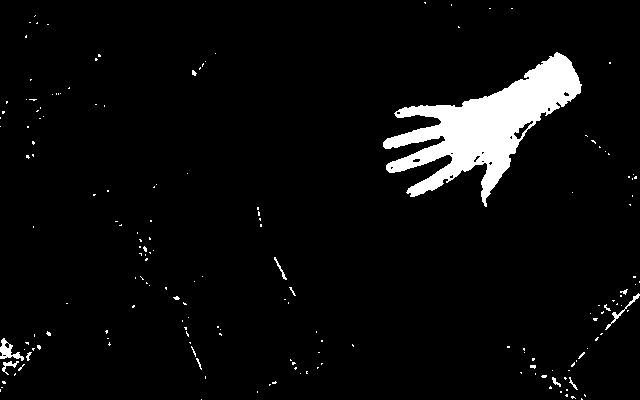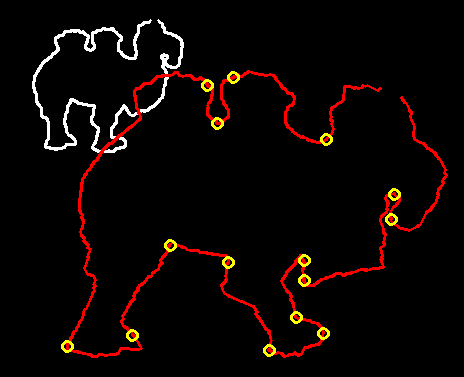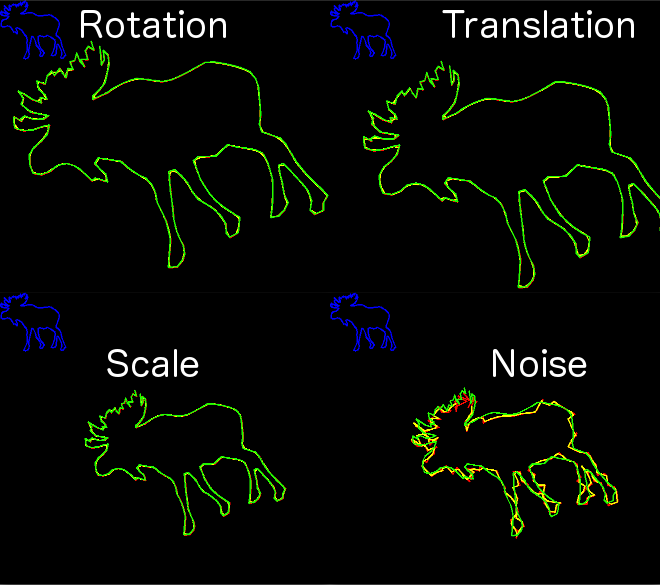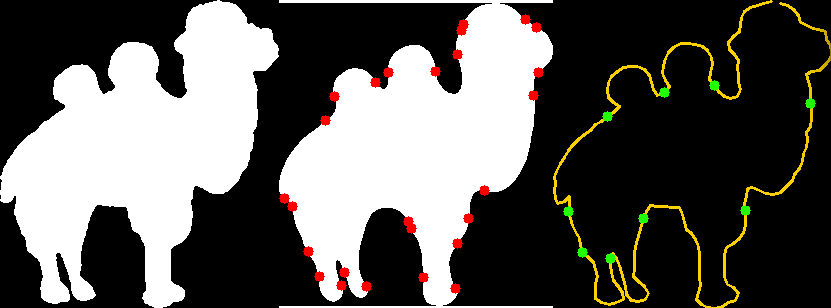I haven’t found a CMake module to find FFMPEG libraries, so I wrote one (a while back) and I thought to share it.
It will look very hard in order to find it on *nix and Win all the same, and I found it useful.
Get the gist: https://gist.github.com/royshil/6318407
Category: code
I wish to report of a number of tweaks and additions to the hand silhouette tracker I posted a while back. First is the ability for it to “snap” to the object using a simple Active Snake method, another is a more advanced resampling technique (the older tracker always resampled after every frame), and of a number of optimizations to increase the speed (tracker now runs at real-time on a single core).
 So animated gifs are awesome if you’re writing a software blog. It saves all this time working with YouTube embeddings and stuff, and your “videos” are stored locally. The simplified FFMPEG writer was before unable to output animated GIFs, but I’ve tweaked it and now it does. It’s also a nice piece of code to learn how to FFMPEG in C.
So animated gifs are awesome if you’re writing a software blog. It saves all this time working with YouTube embeddings and stuff, and your “videos” are stored locally. The simplified FFMPEG writer was before unable to output animated GIFs, but I’ve tweaked it and now it does. It’s also a nice piece of code to learn how to FFMPEG in C.
Just putting it out there for whoever is trying to use the C329 camera module of the SPI variety (the URAT module has code posted online)
I want to share a little snippet in case anyone is interested in writing video files from cpp context using FFMPEG, I’ve made it for usage with OpenFrameworks.
It’s basically a simple wrapper around the encoding mechanism of FFMPEG, so you can easily just say which file to write to and start dumping images into it. It will take care of choosing the codec, writing headers and trailers, encode (compress) the frames and write them to the file.
 I wanna share some code for 2D curve tracking with a particle filter, implementing the body of work of Tony Heap and David Hogg. These guys presented a relatively easy to implement method for tracking deformable curves through space and change in form using a Hierarchical Point Distribution Models (HPDM), which is another elegant way to store shape priors. Granted, it is not perfect, but for a simple 2D shape like a hand it works pretty good, and rather fast as well.
I wanna share some code for 2D curve tracking with a particle filter, implementing the body of work of Tony Heap and David Hogg. These guys presented a relatively easy to implement method for tracking deformable curves through space and change in form using a Hierarchical Point Distribution Models (HPDM), which is another elegant way to store shape priors. Granted, it is not perfect, but for a simple 2D shape like a hand it works pretty good, and rather fast as well.
Let’s dive in then,

 Sharing a bit of code I created for skin detection.
Sharing a bit of code I created for skin detection.

 Hello,
Hello,
I wanna share some code I’ve been working on lately that implements smooth shape manipulation using Moving Least Squares. More specifically, the excellent simple and powerful method by Schaefer et al. from Texas A&M and Rice universities (great paper). The method was written for image deformation but very straightforward modifications made it work perfectly for 2D shapes and open curves.
Let’s get down to business


Just sharing some code and ideas for matching 2D curves. I was working for a while on matching 2D curves to discover shapes in images, but it didn’t work out, what did succeed is this 2D curve matcher that seems to be very robust for certain applications. It’s based on ideas from the Heat Kernel Signature and the CSS Image (that I introduced in my latest post), all around inspecting curves under different level of smoothing.


I’m so glad to be back to work on a graphics project (of which you will probably hear later), because it takes me back to reading papers and implementing work by talented people. I want share a little bit of utilities I’ve developed for working with 2D curves in OpenCV.